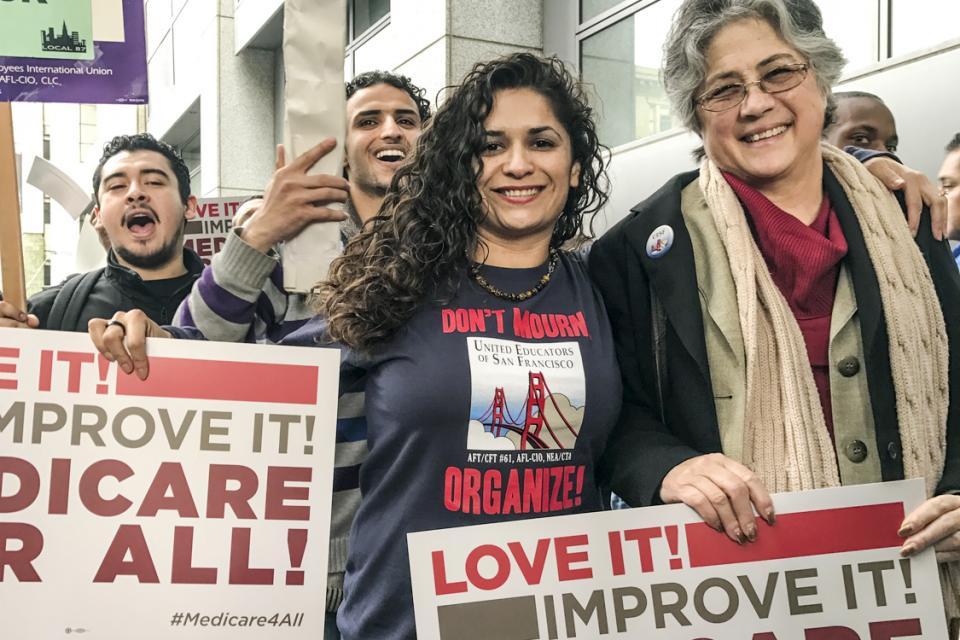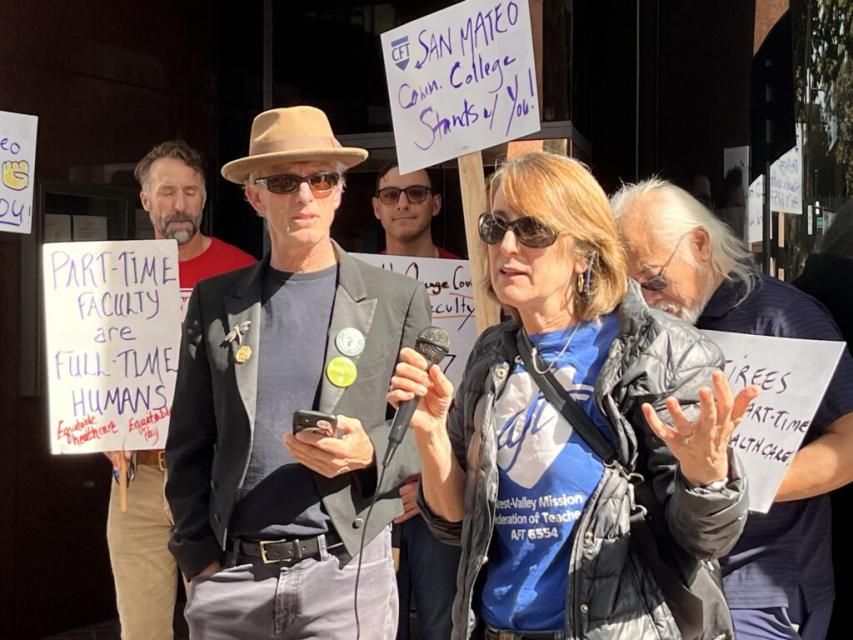Healthcare Reform Campaign
Lives Transformed by CFT’s Part-time Healthcare Campaign
To date, 14 CFT locals have secured AB 190 Option 1 programs (Full-time faculty equivalent healthcare for Part-time faculty working over 40% of a full-time load).
These CFT local union part-time successes have both saved and changed lives for the better.
Bittersweet Legislative Year for CFT Part-time Faculty
Bittersweet would best describe the end results of the 2022-2023 legislative season for community college part-time faculty.
One of the clear positives was the realization of a record 8.22% cost-of-living allowance for California Community Colleges, up .09% from Governor Newsom’s initial proposal of an 8.13% COLA in January. The COLA followed off a fairly robust COLA of 6.56% in 2021-2022.
Part-time Faculty Healthcare Precarity in Two Profiles
A summer vacation and the birth of a child should create happy memories, but for Trevor Krapf and Jennifer Wu, the reality of being part-time and having tenuous healthcare turned both their experiences into financially tragic near misses.
Part-time Healthcare: CFT Locals in the Fight for What’s Morally Right
One year out from the historic passage of AB 190 (the state budget bill for that year), many CFT locals have been successful in securing full-time equivalent medical coverage for their part-time members, while others remain engaged in awakening the moral consciences of their admin and local boards of trustees to do the right thing.
From north to south, CFT locals win healthcare for part-time faculty
Following CFT’s historic victory to secure $200 million annually in ongoing state funding for community college part-time faculty healthcare, the campaign’s next phase has moved to the bargaining table.
At press time fourteen districts have made agreements to offer healthcare to part-time faculty, with part-timers in twelve of those districts represented by CFT locals. Four of the most recent successes were at the San Francisco, West Valley Mission, Los Angeles, and North Orange Community College Districts. These are the stories of their success.






